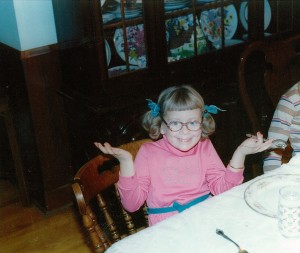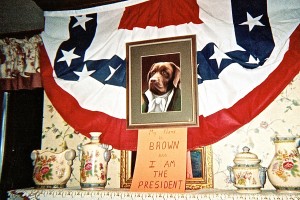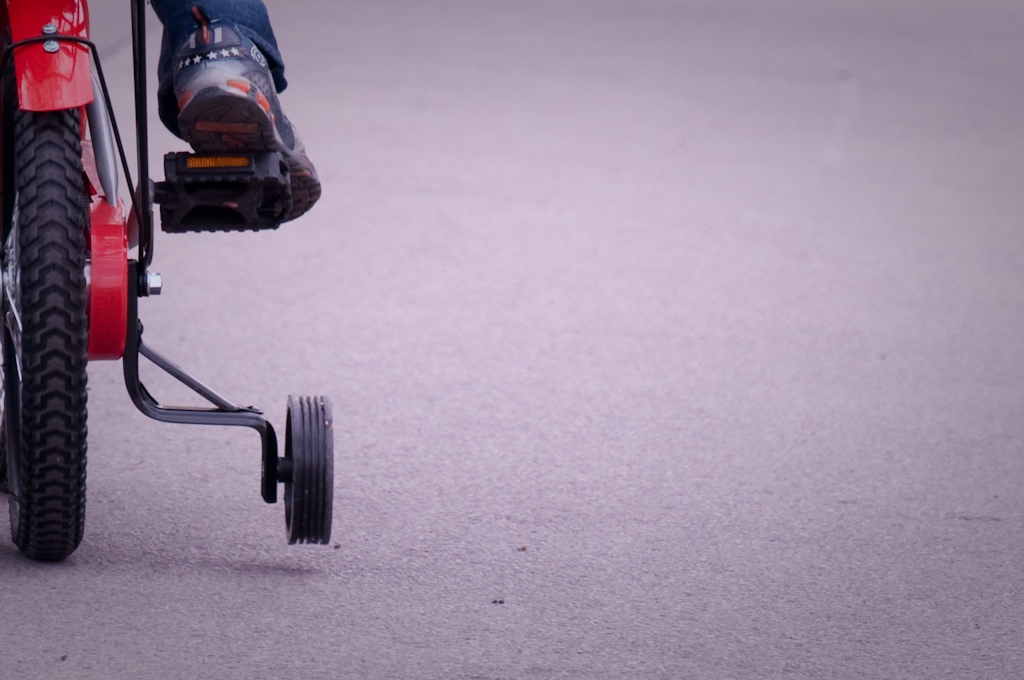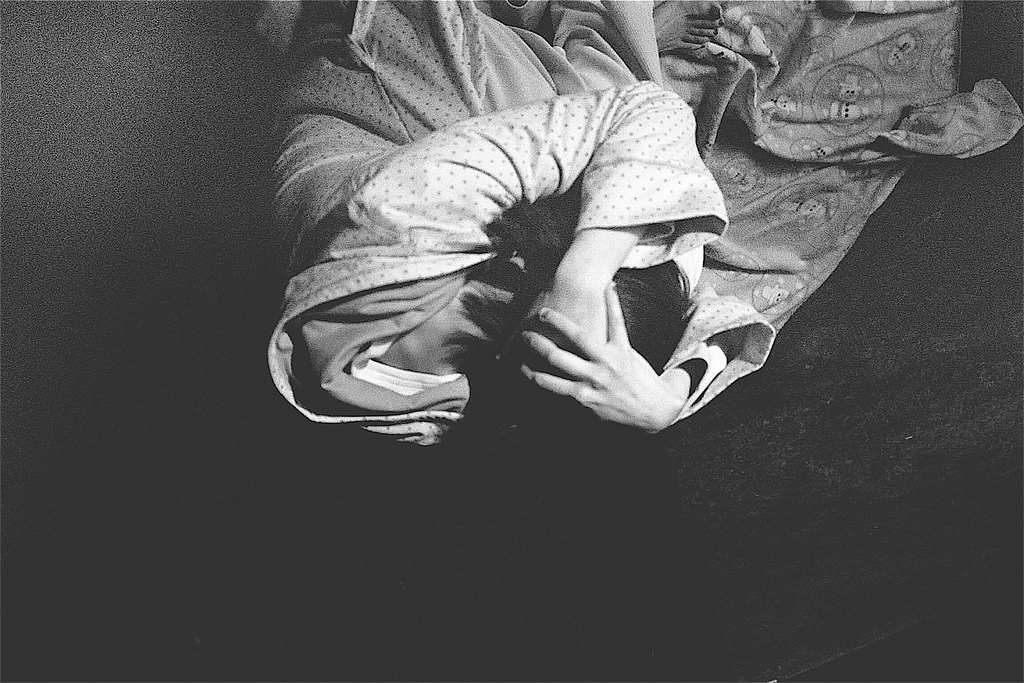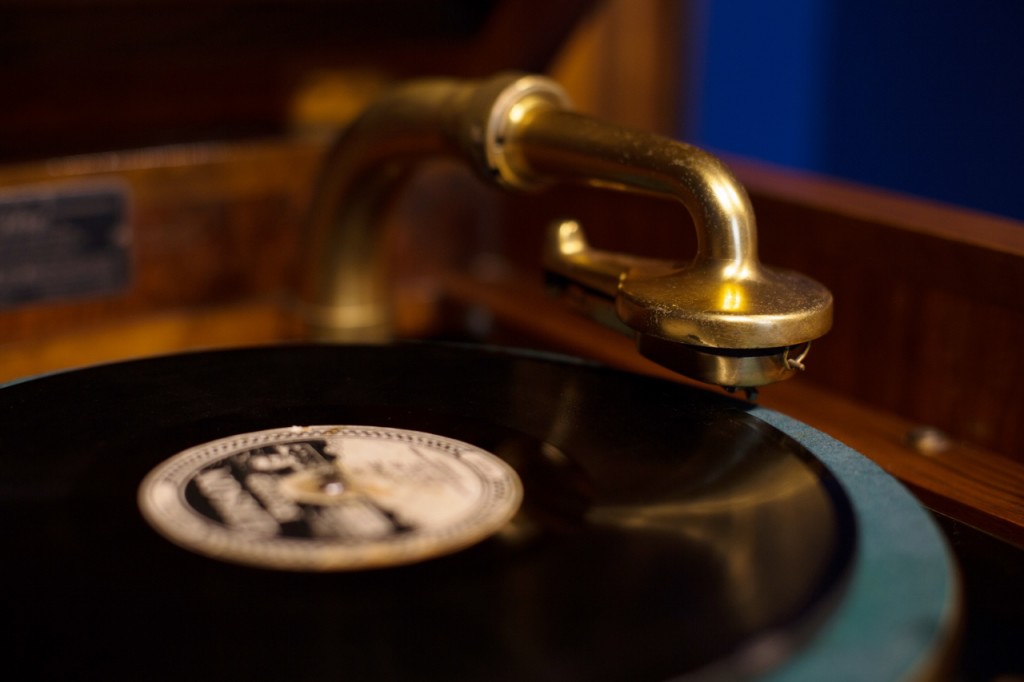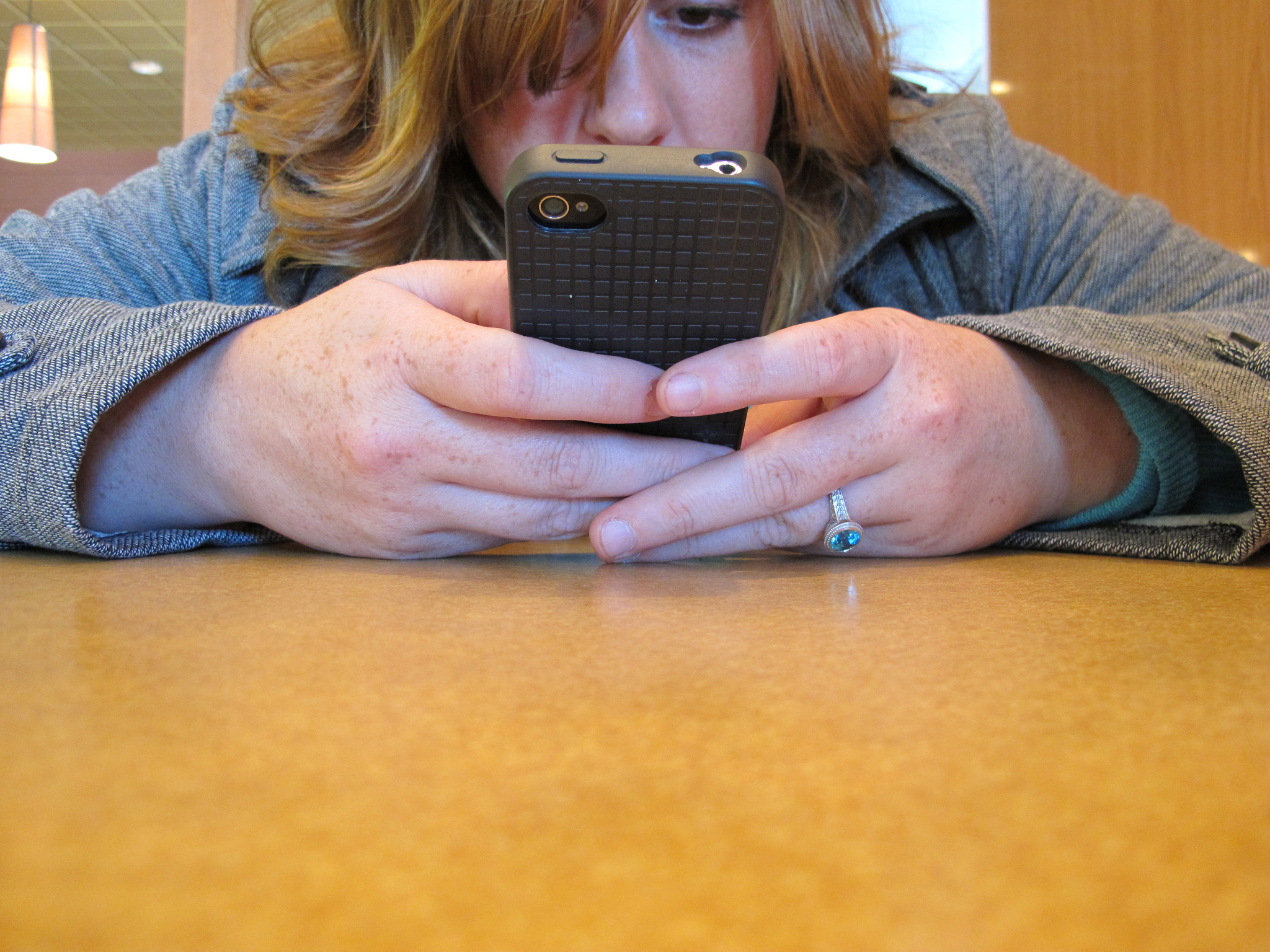
By Sue Granzella
His one-inch thumbnail picture was cute, but that wasn’t why I stopped on the online profile of “Another John” that Saturday morning in 2003. It was his profile header that grabbed my attention, proclaiming, “You will never be a guest on the Jerry Springer Show because of me.”
Visions sprang to mind of a curly-haired woman in a red tube-top, flinging fistfuls of deli meats at her boyfriend. A bald guy in a tight t-shirt chomping on another guy’s bare calf. I remembered a woman’s tearful confession to her outraged spouse, who then stormed backstage and punched a hole in a wall. One thing was clear. The guy who’d written that headline was funny.
•••
Though I’d spent most of my adult life in a series of long-term relationships, I always felt like it was a fluke, like I was an impostor. The real me had no idea how to date. Maybe my ineptitude had taken root in elementary school where the nuns punished the whole class whenever boys and girls bucked the rules and played together during recess. Or maybe it was due to my love of sports; I’d been outdoors playing baseball with my brother’s friends the summer my female classmates were indoors teaching themselves to dance, apply make-up, and shave their legs. Perhaps it was what I’d noticed from a young age: girls who were little and cute got more practice talking to boys. Whatever the origins of my discomfort, when I imagined dating, I felt as graceful as a linebacker doing ballet.
Thankfully, I’d managed to sidestep true “dating,” since most of my love relationships had grown out of friendships. Only rarely had I gone out with strangers. But things felt different now. I was single, finally emerging from months of hibernation after the excruciating breakup of a six-year relationship. Now forty-four, I was past the age of having lots of single male friends.
So I thought about how I could meet someone. I taught elementary school; 98% of my colleagues were women. Bars and nightclubs wouldn’t work; I didn’t drink, and only my dog was allowed to see my dance moves. Though I started reading personals ads, I never made a conscious decision to try online dating, still not widespread in 2003. Reading the ads on Craigslist reminded me that if other people were out looking, too, maybe I wasn’t such a freak.
But entries like “52-year-old married man seeks slender woman, 20-25, for discreet affair” only reinforced my feeling that I was an awkward alien, lost on a planet of dating-proficient people. Eventually, I decided that it might be less depressing if I went to a website that was solely for dating, rather than one that also told me where to recycle my scrap metal.
•••
I’d been window-shopping on Match.com for six weeks. Following my instructions, the website was showing me single men in their forties who lived within five miles of me. If anyone’s intro paragraph passed my test for “smart” and “funny,” I’d read the rest of his profile and hunt for shared values and interests. So far, I’d granted a few men ratings of “mildly interesting,” but no one had intrigued me enough to make me break out the credit card and pay for the privilege of contacting him. The Jerry Springer guy had my attention, though. I read on.
Then I saw them, my magic words, standing tall and proud in the second sentence: “friends,” “committed,” “monogamous,” and “very long-term.” I felt a little flutter inside from a part of me that had long been paralyzed. I had wondered if my last relationship had killed it, but as I continued reading, I could feel that hope had survived.
Another John sounded like he knew what he wanted. I knew what I didn’t want—another six years with a man who ultimately didn’t want to commit. With each sentence, though, I got a sense of someone who knew himself, someone who wanted a true partner. I scanned the rest, waiting for the one-liner that would stop my forward motion.
But it didn’t come. He wasn’t a rock-climbing, parachute-jumping super-stud longing for a woman who could comfortably strut the red carpet as well as stroll the beach. Neither was he looking for a supermodel fifteen years younger than he.
Instead, he hoped for someone who could watch films with subtitles, who would never cross a picket line, and whose stance toward religion was one of tolerance. If he needed a weekly bungee-jumping fix, he didn’t mention it. He liked having dinner with friends, eating M&Ms in movie theaters, and camping in the mountains.
He was open to a rainbow of ethnicities, and under “you could be,” this agnostic man, Another John, had marked everything from Taoist to Muslim to Jewish to atheist. He didn’t require a younger woman, and he’d even marked that he was open to someone several years older than he. In online dating, that was a rarity.
That was it. It was time to pay up.
I felt a ridiculous sense of urgency as I ran to grab my credit card. After all, Another John had been out there for the entire forty-four years I’d been alive. But now that I’d found him, I didn’t want anyone else to snag him before I’d had my chance. Hurriedly, I re-entered my username and password.
Then I had to decide the length of my pay-in-advance membership. Even though the monthly price would be cheaper if I went long term, wasn’t it pessimistic to assume that I’d need a whole year to find someone? And anyway, hadn’t I already found him? He just didn’t know it yet. So I chose the bare minimum, the one-month plan.
I was dismayed to discover next that I’d have to create a profile before I could contact him. As precious minutes ticked by, I typed sentences about myself that I hoped would appeal to Another John. Would it seem too scary if I used the word “crazed” in my headline? And if I said “Baseball-Crazed Hiking Teacher,” did that make it sound like I taught hiking or like I was a teacher who liked to hike? Was it too much too soon if I wrote that I ultimately wanted to get married? Oh, man. Why hadn’t I thought about this stuff beforehand? My hands trembled as the panic raced through me.
After whipping out a paragraph that I hoped was both funny and substantive, I reached the step where I got to specify the traits I was looking for in a partner. It was like building my own omelet at Denny’s. And in selecting the ingredients that were exactly to my tastes, I found that the omelet-person I was creating sounded an awful lot like Another John.
Finally, I clicked on the “contact” link, and it was done. Feeling giddy, I closed the laptop. All I could do now was wait.
That evening, while congratulating myself for my boldness, I reread his profile. Suddenly, my eyes widened, and I scanned the list of religions that Another John had deemed acceptable. It wasn’t there!
Distracted by my pleasure at how open-minded A.J. was, I’d failed to notice that the one religion missing from his “approved” list was the one that was in my bones. I’d attended Catholic school for twelve plaid-skirt-wearing years and had gone to daily Mass for nearly a decade of my adulthood. I’d been courted by hopeful nuns who’d recognized my potential as a future convent-dweller, and I’d worked for Catholic organizations. Though I hadn’t attended Mass or believed in most Catholic teachings for many years, I couldn’t deny who I was. I was pretty damned Catholic.
Another John hadn’t listed “Christianity” in his comprehensive “Muslims and Taoists are fine” list. And since Catholicism came under the Christian umbrella, I’d contacted him under false pretenses, the internet-dating equivalent of a sin.
So I dashed off an, “Oh, no! You didn’t want to meet Christians! I didn’t ignore that on purpose!” email to him.
The next day, I received a very polite response. Another John apologized for the delay, explaining that he was being very conscientious about sending a response to every single person who’d contacted him.
Well, now. It certainly sounded like he’d been very busy. I pictured his frenzied fingers typing wildly in an effort to keep up with the hordes of single women in their forties who, like I, had recognized his potential. I read on.
He gracefully accepted my unveiling of the Catholicism, explaining that he’d left “Christian” off in case he attracted someone who might want to convert his agnostic self. My profile must have communicated, “I do not need to drag you to church”; he assured me that he wasn’t worried about my Catholicism.
The one point on which he did want clarification was my long-time vegetarianism. Fascinating! He was okay with my religious upbringing that believed that dry bread could be turned into Jesus, but he was cautious about my love of garbanzos and cauliflower?
His earnest questions were endearing:
Do you avoid meat on moral grounds? Does it bother you if your dinner partner eats meat? Can you tolerate meat in your house?
The answers were easy. I’d stopped eating meat decades earlier when I’d been a camp counselor and could think of no other way to stop gorging myself at the buffet. After that summer, I’d just let the meat habit die. There was no moral ground; I was simply a recovering glutton.
The rest of my email continued:
“I hope your fingers are okay. Sounds like they’re getting worn down to nubs, what with all the emails you’re sending to interested women.”
We continued back and forth for a few days, lighthearted jokes sprinkled in among the “So what kind of person are you?” questions. Then we decided we didn’t need the website to be our chaperone anymore and exchanged email addresses.
My heart would happily skip a beat when I’d see Another John’s name in my inbox. I thought of him as “The Serious One,” even though it was his humor that had attracted me immediately. In his profile photos, he looked intent and businesslike. Me? Digital cameras were still uncommon in 2003, so I had only one digital picture to post, a shot of me wearing a shiny gold crown. John’s emails were brief and politely inquisitive, usually including a line that made me chuckle. My emails to him were newsy and energetic.
“Hey, John. So my city-kid third-graders are on a field trip in the forest, and the naturalist does a ‘notice what’s around you’ activity. She gathers the kids, then tells them to sit down and listen to the sounds of nature. Kenneth turns to me and whispers, ‘Does she mean sit in the dirt?’ I roll my eyes, nod, and point to the ground. Kenneth looks appalled, and says, ‘But won’t that be—dirty?’ Sheesh. Hope your day was okay. Sue”
His response:
“Hi, Sue. I got home early, so it’s all good. Do you think you’d feel comfortable exchanging phone numbers? I would if you would. Then we can figure out a time to talk. John. P.S. Hope Kenneth cleaned up okay.”
We agreed to talk the next night, a Tuesday, after he got home from work. At six-thirty, the phone rang, and I ran toward the bedroom, my collie-mix dog Cody bounding after me.
“Hi, it’s John.”
His voice startled me. I’d been imagining it as deep and maybe slow. Instead, his pitch had a lighthearted, smooth energy that attracted me instantly. Not that anything would have been wrong with deep but hearing his voice was like biting into a cookie with my eyes closed, expecting a ginger snap. Instead, it was chocolate chip, fresh-baked, with the chocolate all warm and swirled and melty.
I didn’t tell him that I’d expected his voice to be deeper. Instead, I told him how funny I’d thought his Jerry Springer headline was. He said he’d figured it would be a humorous way to convey that he wasn’t into crazy drama.
“Yeah, looking for someone is pretty nerve-wracking, so ‘no crazy drama’ sounds excellent,” I said. “It’s been six years since I’ve gone out with anyone new. And I’ve usually only dated people I already knew. I don’t know what I’m doing.” There. I’d confessed to being a dating neophyte. It was a relief.
John topped me, though. “I know what you mean. My last relationship ended two years ago. And we’d been together for thirteen years. So… it’s been a long time.”
I had not considered this possibility. He was even more unaccustomed to the dating world than I was! And yet, he seemed so … so normal. I instantly felt less alone, less like the awkward alien on a planet of dating-proficient people. There was another alien inhabiting my planet. I liked having company.
We talked for half an hour. John made it clear that he wasn’t around on Wednesdays, so we agreed that I’d call him on Thursday. I hung up, and floated from room to room of my little Craftsman bungalow, filled with a sense of accomplishment. I was thinking more about myself than I was about John. “I did it! I did it!” The words sounded loud in my head.
•••
Over the next two weeks, we spoke most evenings. I assumed my position: lying on the floor, feet up on the bed, Cody at my side. Sometimes we’d talk for an hour or more. As our familiarity grew, we experimented both with kidding each other and with sharing parts of our past. And we talked about this experience of seeking a connection with an unseen stranger.
“One thing I liked about your profile is that you were willing to consider women who are a little older than you,” I told him. “So many men only want someone who’s way younger than they are! What is that?” That trend in men’s profiles had infuriated me.
John knew I was a teacher, and his deadpan reply was, “Well, sure, I could try to find someone who’s twenty. But then when I’d ask how her day at school had been, it would mean something very different from when I ask you.”
My laugh rang out. That was happening often. John’s humor would come at me from surprising angles, and I’d laugh from sheer delight.
Another Wednesday was rolling around, and so on Tuesday evening, John reminded me that he wouldn’t be available the following night. Over the past two weeks, I’d been curious about his regularly scheduled Wednesday activity but knew it wasn’t my business to ask. I couldn’t help wondering though.
One thought I had was that maybe he’d not been truthful on his profile when he said that he didn’t have kids. Maybe he had a couple of kids, and maybe his custody agreement was that he got them every Wednesday. I decided that would be okay. After all, I liked kids. And wouldn’t I rather he be a dedicated parent than some deadbeat dad who disregarded his responsibilities, responsibilities who, after all, were little human beings? Yes, I would. Sure, John hadn’t been totally upfront with me about his kids, but at least he was doing right by them. Good for him.
But then I wondered if maybe rather than being a secret parent, he instead was an alcoholic who faithfully attended AA every Wednesday. That seemed more plausible. Respondents were asked about their parental status on the dating profile, but there wasn’t a single question about one’s substance-abuse status. So John could have filled out his profile with total honesty while still being an alcoholic. And I understood that at first he’d hide something so personal. I mean, why should he tell me that right off? No sense in scaring me away. He’d confide in me if we ever got close enough. I decided I would be okay if he were an alcoholic, given that he was an AA regular and all. That way he was a recovering alcoholic, instead of a still-raging alcoholic.
These thoughts were in the back of my mind until that Tuesday night. John brought them racing to the front when he said, slowly, “Well—I guess it’s about time that I tell you what I do on Wednesdays.”
I wasn’t prepared. “Okay,” I said, trying to sound casual. I felt my heart speed up, and I took a big breath. I reminded myself that at least he was a responsible parent/alcoholic.
The silence ticked on. I waited in what I hoped would be perceived as a supportive silence.
John took a breath, and slowly, the truth came out. “On Wednesdays—I bowl.”
My sudden burst of laughter was a cross between a bark and a scream. That innocent little word struck me so funny that I could barely suck in air. “Bowl” was evocative of the wholesomeness of the 1950s, completely undeserving of its role in a shameful confession.
I choked out, “Why do you say it like it’s such an awful thing?” I imagined him in his house, grinning broadly at his success in reducing me to gasps and sputters.
“Well, you have to admit—‘I bowl’ isn’t something you lead with. A person needs time to build up to it. Expecting someone else to accept that right off? It’s too much.” I could practically hear him smiling.
Still giggling, I said, “Well, if it makes you feel any better, I play an instrument that’s the musical equivalent of ‘bowling.’ Want to guess?”
We laughed some more after I said, “Accordion.” I decided not to tell him that I’d already decided to embrace him despite his being a lying alcoholic parent who denied the existence of his two children.
•••
It was that night that we discussed meeting in person. We liked the idea but wanted to make sure neither of us would feel pressured. John already had a little experience with online dates and offered some guidelines.
“They say it should be a neutral meeting place, out in public but not right near one person’s house. And we should also set a time limit the first time, so no one feels trapped.”
“That sounds good. Anything else?”
We agreed to meet during the day, for no more than an hour. We decided on ten-thirty that upcoming Saturday morning at a coffee house equidistant from our homes.
In addition to the guidelines, we agreed on something else—our feelings about the experimental process we’d undertaken, this method of looking for love. We both were finding it liberating. There was something deliciously freeing about starting off already knowing what the other person wanted. There was much less guessing. And the invisibility of the other person only enhanced that sense of freedom. When we dated someone who was already in our everyday life, there was a risk of losing a friend if it didn’t work out. So maybe we’d compromise what we wanted, trying to avoid awkwardness.
But for both John and me, starting with a total stranger helped us commit to being our most honest selves. We each had already found ourselves thinking, If this doesn’t work, I’ve lost nothing because I don’t even know this person. I’m just going to be myself, and if myself doesn’t work, then this wouldn’t work. I can’t try to shape myself into someone else.
I’d entered into the process of online dating because I’d felt so inept at meeting men. Now that I was on the threshold of meeting someone in person, I couldn’t remember ever having felt more clear and free about the prospect of a date. I knew that I’d like to find a partner, but that I didn’t have to find one. I knew I’d be okay. I had good friends, a job that I loved, and a heart that was healing.
I couldn’t have known at the start where things would lead with Another John. I couldn’t know that I’d feel daring enough on the first date to confess my scary health secret to him, or that I’d have trouble falling asleep after our three-hour dinner on the second date because I hadn’t known I could be that happy with someone. I couldn’t know that for him, the decision point would come when we saw Bad Santa two weeks later, when he heard me crying with laughter at the twisted, offensive humor and he realized that we belonged together.
All I knew then was that I was looking forward to that Saturday morning with more excitement than I’d felt in a long time.
•••
SUE GRANZELLA has won awards from MemoirsInk and in the Soul-Making Keats Literary Competition. Her writing appears or is forthcoming in Punchnel’s, Gravel, Citron Review, Hippocampus, Lowestoft Chronicle, Ascent, Crunchable, and Prick of the Spindle, among others. Sue teaches third grade in the San Francisco Bay Area, where she lives with her no-longer-bowling husband, John. She loves baseball, stand-up comedy, road trips, and reading the writing of eight- and nine-year-olds. Find more of Sue’s writing at www.suegranzella.com.

 Follow
Follow

